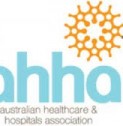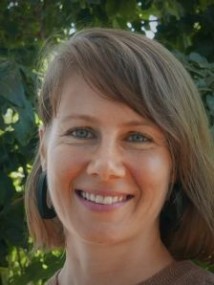Dr Stefanie Puszka
Research Fellow
Qualifications:
PhD, Australian National University & Charles Darwin University, 2021; Graduate Certificate in Yolŋu Studies, Charles Darwin University, 2012; Bachelor of Indigenous Knowledges (Hons I), Charles Darwin University, 2009; Bachelor of Arts, Monash University, 2008
Location:
Darwin - Royal Darwin Hospital
Biography:
Stef is a medical anthropologist with experience in public health and ethnographic research. She works with First Nations peoples to undertake both applied and critical projects. Her research interests include caregiving in contexts of chronic disease and disability; the intersection of biomedicine and other Western therapeutic approaches with Indigenous practices of health and kinship through healthcare and disability services and social housing; and the development and evaluation of models of care. In her PhD dissertation, Stef explored the social, economic and political relations of care that arise through end stage kidney disease in Yolŋu society. In her current role, Stef is addressing the appropriateness and cultural safety of current models of care for young First Nations people with type 2 diabetes.
Stef was awarded an NHRMC postgraduate scholarship in 2017-19 and a Barbara Hale Fellowship in 2018.
She is an Honorary Fellow at the Centre for Aboriginal Economic Policy Research, Australian National University.
Research Themes
- Co-design and developmental evaluation of enhanced models of care with Australian First Nations children and youth with type 2 diabetes
-

With Nowhere Else To Go, This Dialysis Patient From A Remote Community Has Spent Years In A Short-Stay Hostel
Arriving in Darwin in 2015, many Aboriginal people coming from community to urban centres for dialysis, are confronted with the question: where can they live while getting the life-saving treatment?
-

Fixing health—why housing and income policy must be part of the mix
Stefanie Puszka outlines why housing and income policy changes are needed to improve health outcomes for Aboriginal and Torres Strait Islander renal patients with complex care needs.
- Puszka S*, Walsh C*, Markham F, Barney J, Yap M, Dreise T (2022) Towards the decolonisation of disability: A systematic review of disability conceptualisations, practices and experiences of First Nations people of Australia, Social Science & Medicine, 305, DOI: 10.1016/j.socscimed.2022.115047
- Puszka S (2021) ‘Dirty work’: The politics of risk and responsibility in Northern Territory renal services, The Australian Journal of Anthropology, 32(1), DOI: 10.1111/taja.12390
- Puszka S (2020) A politics of care in urban public housing: Housing precarity amongst Yolŋu renal patients in Darwin, Housing Studies, published online, DOI: 10.1080/02673037.2020.1831445
- Raphiphatthana B, Sweet M, Puszka S, Dingwall K, Nagel, T (2020) Evaluation of a three-phase implementation program in enhancing e-mental health adoption within Indigenous primary healthcare organisations, BMC Health Services Research 20(576), DOI:10.1186/s12913-020-05431-y
- Raphiphatthana B, Sweet M, Puszka S, Whitty M, Dingwall K, Nagel, T (2020) Evaluation of electronic mental health implementation in Northern Territory services using the i-PARIHS framework: Qualitative study, Journal of Medical Internet Research Mental Health 7(5): e14835, DOI: 10.2196/14835
- Nagel T, Sweet M, Dingwall K, Puszka S, Hughes J, Kavanagh D, Cass A, Howard K, Majoni S (2020) Adapting wellbeing research tools for Aboriginal and Torres Strait Islander people with chronic kidney disease, BMC Nephrology 21(130), DOI: 10.1186/s12882-020-01776-y
- Kearns T, Ward F, Puszka S, Gundjirryirr R, Moss B, Bailie R (2017) Anaemia Health Literacy of Community Members and Health Practitioners: Knowledge of Best Practice Guidelines in a Remote Australian Aboriginal Community, Universal Journal of Public Health 5(1): 32-39, DOI: 10.13189/ujph.2017.050105
- Puszka S, Dingwall K, Sweet M, Nagel T (2016) E-Mental Health Innovations for Aboriginal and Torres Strait Islander Australians: A Qualitative Study of Implementation Needs in Health Services, JMIR Mental Health, 3(3): e43, DOI: 10.2196/mental.5837
- Dingwall K, Puszka S, Sweet M, Mills PPJR, Nagel T (2015) Evaluation of a culturally adapted training course in Indigenous e-mental health, Australasian Psychiatry, 23(6): 630-635, DOI: 10.1177/1039856215608282
- Dingwall K, Puszka S, Sweet M, Nagel T (2015) “Like Drawing Into Sand”: Acceptability, Feasibility, and Appropriateness of a New e-Mental Health Resource for Service Providers Working With Aboriginal and Torres Strait Islander People, Australian Psychologist, 50: 60-69, doi:10.1111/ap.12100
- Puszka S, Nagel T, Matthews V, Mosca D, Piovesan R, Nori A, Bailie R (2015) Monitoring and assessing the quality of care for youth: developing an audit tool using an expert consensus approach, International Journal of Mental Health Systems, 9(28), DOI 10.1186/s13033-015-0019-5
- Puszka S, Greatorex J, Williams G (2013) Regulating Responsibilities: Income management, community engagement and bureaucratic learning at Mäpuru, north east Arnhem Land, Learning Communities: International Journal of Learning in Social Contexts, 13, http://www.cdu.edu.au/sites/default/files/the-northern-institute/10.18793-lcj2013.13.07.pdf

